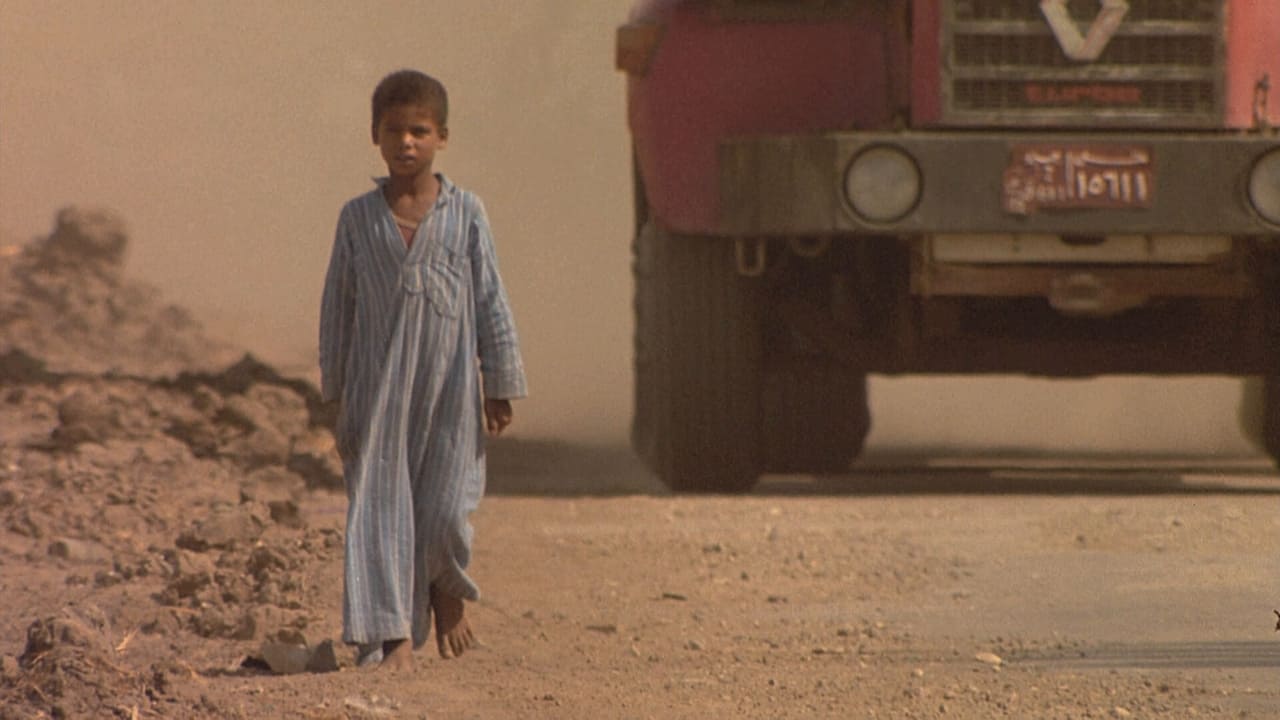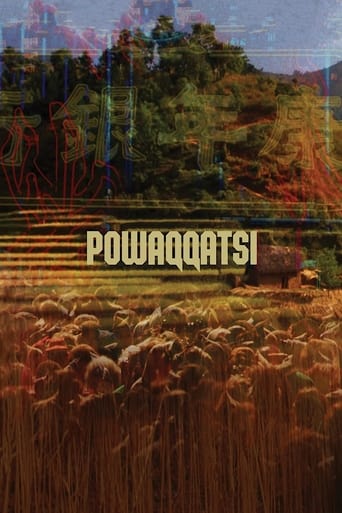

Well, when it came to Powaqqatsi's camera-work, I certainly had nothing to really complain about in regards to that. Overall, it was quite excellent and impressive to behold.But, with that said, I honestly have to admit that viewing recurring images of 3rd World poverty and population overload (set at a gruellingly slow pace) did, indeed, become quite tiresome to sit through, in the long run.In fact, I ended up watching most of Powaqqatsi in fast-forward mode - 'Cause I knew that I just couldn't have endured viewing it, from start to finish, at its full 99-minute running time. No way.Powaqqatsi was directed by Godfrey Reggio. Its budget was $2.5 million.
... View MoreThe imagery, metaphors and sound track in this, the second of the Glass/Reggio trilogy, are, in my opinion, better than those in Koyanisqatsi (1982). As much as I admired the latter, it did concentrate on the 'life-out-of-balance' scene in USA, to the exclusion of the bulk of the world's population.Powaqqatsi redresses that imbalance...and adds the second chapter in this trilogy.First, a few words about the music, a choral and orchestral mix that is simply spine-chilling and transcendental at the same time, a thematic tour-de-force that celebrates the almost tireless strength and perseverance of today's pre-industrial world, which encompasses South America, Africa, India and China. It's worth seeing this film just to listen to that music, in my opinion.The visual, however, is just as compelling, beginning and briefly ending with scenes from an earthly hell: the gold mines at Serra Pelada Bald Mountain somewhere in Brazil, where the workers march to the lure of riches, accompanied by staccato tom-toms, to carry bags of gold-flecked earth to the top of a ridge for collection. This is work at its meanest... and often most grueling, as shown by two men bearing a stricken worker on their backs to the top.But, it's not all bad. Sparkling images of boats on the sea; glistening sunlight shimmering; a lone eagle silhouetted against an evening sun; masses of people celebrating in dance; reflections, in water, of people walking; an amazing shot of a tree reflected in water...All of which segues into the modern accoutrements that enhance and yet which begin the process of enslavement to the god of consumerism: trains in motion; videos on TV; the crowded commercial areas in China, Africa and India (watching a cricket game, no less); industrial smog; garbage dumps; bizarre bazaars; international trade; commuter trains and boats, staggering under the load of humanity that joins the daily rush, rush, rush...except for one little girl who stops and stares at the camera for the longest time, watching, thinking, wondering...You could argue, I suppose, that the negative side of industrial development is over-done; I'm sure many would see this film in that regard. However, considering the time that this film was made twenty years ago I tend to think that the negativity is appropriate because much is now worse, particularly in China and India, where unchecked development is literally a smoking time bomb of industrial pollution.Powaqqatsi's message about life on earth going the wrong way is spot on: from the despair in the eyes of workers as they grind away at their wheels or machines, to somber children facing the camera, to once again the symbolically crucified worker on the backs of his co-workers at Serra Pelada, every person who sees this must pause and reflect upon themselves and their purpose on this earth, however imperfectly, just as those who, in the final scene, often see themselves reflected in shimmering water but ever moving, walking, jostling forward to, we all hope, better times and bigger rewards.At the end of this film, the viewer learns that powaqqatsi is formed by the combination of two Hopi Indian words: 'powaq', meaning 'sorcerer' and 'qatsi' meaning 'life'. Thus life sorcerer, one who has power over life and death.Was it Pogo who said: I have seen the enemy and they is us? See this movie and answer for yourself.
... View MoreThis film is, according to its director, a look at a "global culture"; a visual assessment of the response of the "third world" to the force of globalization and the pressure to modernize. He says there are both good points and bad points to be observed, and hopes to portray the creativity and industriousness with which people around the world respond to the demands of their environments.I do not see this. I see a moving, and beautiful film, but not about this. I see the destructive effects of the ever-increasing commodification of nature, life, and labor, on people as they are forced to abandon their homes and livelihoods to nationalist projects and capital ventures. I see (to use Karl Polanyi's words) the uprooting of peoples and places, and the destructive forces of market enterprise disguised under tropes of progress and modernity.Yes. Human beings are creative and industrious, and have dealt with these problems in unique and fascinating ways. But, rather than simply celebrating the Beauty of Human Life, in all it's glory, let this film be a call to recognize this beauty, and recognize its value as intrinsic, as part and parcel to the livelihoods of the people it is embodied within.
... View MoreThis film sweeps along in what sometimes looks almost like a travel documentary. The viewer is taken to Brazilian mines, across plains, native fishing fleets, Egypt (?) and New York. The film seems to be drawing a contrast between the Third World and "Civilization" ways of lifeThe images presented are breath-taking and beautifully shot, if at times a little disquieting (the close-up, "in the face" shots of people make you feel that you are invading their privacy!). But what makes the film for me is the music, I honestly thought at one time that it was the reason for the film.The Score is by Phillip Glass, and just soars along linking everything together. It's very well done and you find yourself disappointed when a theme ends, only to be replaced by another, just as good as the last. Some of the music also cropped up in "The Truman Show" (Jim Carey as Truman, 1998), causing me to dig out my aging VCR recording of Powaqqatsi and wear it out a little more. Looking forward to the DVD.
... View More